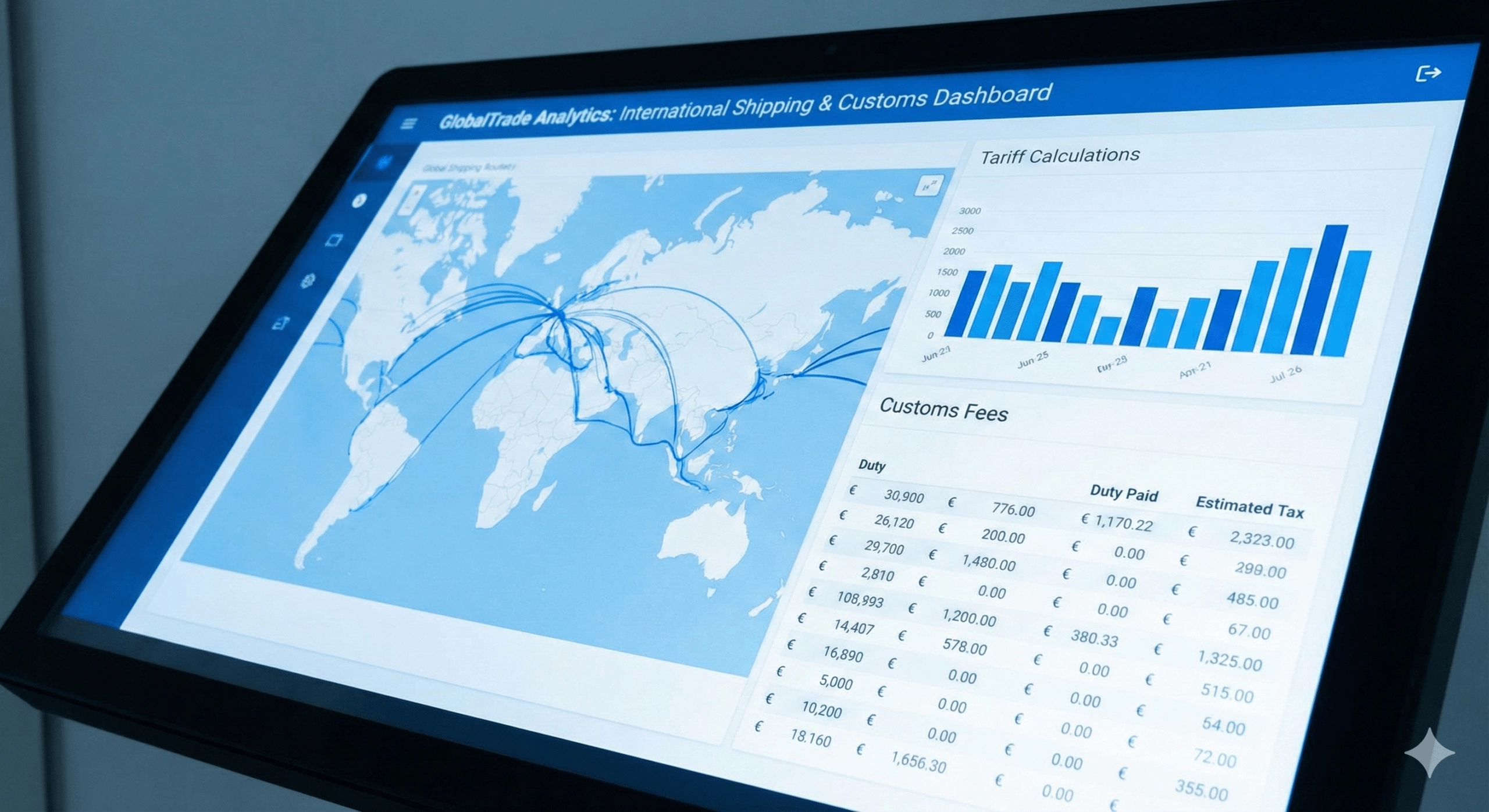With Europe’s eCommerce market projected to reach $900 billion by 2028, and a significant portion of that belonging to the European Union (EU), it’s clear that the EU presents immense opportunities for U.S. brands looking to expand their reach. However, along with this growth comes a complex legal environment shaped by the Digital Services Act (DSA) and the Digital Markets Act (DMA). Introduced by the European Commission and European Parliament, these landmark laws are transforming the online environment. By setting new standards for service providers, online marketplaces, and social media platforms, the EU Digital laws are meant to create a safer, fairer single market and ensure consumer protection while addressing systemic risks such as disinformation and illegal content. U.S. brands must understand these new rules in order to succeed in the highly regulated EU.
In this blog post, we’ll break down the implications of the EU digital laws and why compliance is critical for expanding into EU member states.
The Need for Increased Digital Security
In recent years, the growth of digital platforms and online services has revolutionized commerce and communication, creating unprecedented opportunities for businesses and consumers. However, alongside these advancements have come significant challenges, particularly concerning security, privacy, and the protection of human rights in the digital age. This prompted the EU to introduce laws to address these concerns and ensure a safer and more transparent online environment.
One of the key drivers behind these regulations is the influence of very large online platforms (VLOPs), such as TikTok and major app stores, which have become integral to daily life but have also been associated with significant risks. These platforms, given their extensive reach and scale, are often used for the dissemination of harmful or illegal content, including materials that can profoundly harm minors and vulnerable populations. To mitigate these risks, the EU has imposed additional obligations on these platforms, requiring them to take active measures to monitor and remove such content while respecting human rights and promoting accountability.
The need for increased digital security also stems from widespread infringements that undermine trust in the digital economy. Issues such as counterfeit goods, data breaches, and misinformation highlighted the gaps in the eCommerce Directive, which previously governed the EU’s digital landscape. Recognizing these shortcomings, the EU launched a series of initiatives aimed at strengthening protections, particularly for minors, and ensuring platforms provide detailed transparency reports on their actions to combat illegal content and address systemic risks.
For eCommerce businesses, these laws emphasize the importance of compliance with stringent requirements to operate within the EU. Platforms must now ensure clear reporting mechanisms for illegal activity and protect against risks while maintaining user privacy. This push for accountability extends to VLOPs and online services, requiring them to implement robust policies and practices to prevent further infringements and rebuild trust.
By focusing on enhancing security and transparency, the EU is not only safeguarding its digital economy but also setting a global standard for regulating digital platforms and promoting responsible online commerce. For businesses aiming to expand into the EU, understanding and adhering to these laws is essential for navigating the complexities of this new regulatory environment while fostering consumer trust.
Let’s take a closer look.

Exploring EU Digital Laws
EU Digital Services Act (DSA)
The Digital Services Act is a landmark regulation in the European Union's push to create a safer and more accountable online environment. Enforced across all EU member states, the DSA lays out a comprehensive legal framework to regulate online platforms while protecting the fundamental rights of users. It is designed to foster trust, promote transparency, and ensure fair practices within the single market.
Key Objectives of the DSA
The DSA is built on principles aimed at addressing systemic challenges in the online environment:
- Fostering transparency and accountability. Platforms must operate with clarity, providing detailed information about their content moderation policies and decision-making processes.
- Combating the spread of illegal content. The DSA places stricter obligations on platforms to swiftly address illegal content, whether it’s counterfeit goods, harmful materials, or misleading product listings.
- Ensuring consumer protection. To build trust and protect buyers, the DSA requires verification of suppliers and the provision of clear, accurate product details.
Key Requirements for eCommerce Businesses
For U.S. brands expanding into the EU, compliance with the DSA involves several critical actions:
- Transparency in content moderation
- Businesses operating online marketplaces or social media platforms must provide clear, publicly available policies on how they moderate content.
- If platforms use recommender systems or artificial intelligence (AI) for moderation, they must disclose how these technologies function and ensure decisions respect users' rights.
- Stricter rules on illegal content
- The DSA introduces obligations to act quickly when illegal content is flagged by trusted flaggers or reported by national authorities. This content includes counterfeit products and listings that violate EU law.
- Platforms must create mechanisms to address flagged content efficiently while maintaining users’ fundamental rights.
- Product authenticity obligations
- eCommerce businesses must verify that all products comply with EU standards.
- Detailed and accurate product descriptions are mandatory, ensuring buyers receive transparent and trustworthy information about what they purchase.
- Businesses must also ensure their online marketplaces provide clear seller identification to prevent fraud.
Compliance with the DSA is an opportunity to build trust with European consumers. By embracing transparency, promoting accountability, and prioritizing product authenticity, businesses can thrive in the increasingly competitive EU market.
Digital Markets Act (DMA)
The Digital Markets Act is a crucial component of the EU’s efforts to foster fairness and innovation in the online environment. The DMA targets the practices of gatekeeper platforms—dominant players such as Amazon, Google, and Meta—that exert significant influence in the digital economy. By addressing anti-competitive behavior, the DMA aims to create a level playing field for businesses operating in the single market.
Key Objectives of the DMA
The DMA is designed to:
- Promote fair competition. Ensure that smaller businesses and start-ups have equal opportunities to compete with larger platforms.
- Prevent unfair practices. Eliminate exploitative practices by gatekeepers, such as unfair pricing, self-preferencing, and restricting access to data.
- Foster innovation. Enable a more open and competitive marketplace where businesses can thrive.
Key Requirements for eCommerce Brands
- Preventing unfair practices
- Larger platforms are prohibited from favoring their own services or products over those of independent sellers on their platforms (e.g., self-preferencing in search results).
- Gatekeepers cannot unfairly restrict smaller businesses from accessing critical platform features, such as interfaces or user data.
- Ensuring fair visibility
- The DMA mandates that recommender systems and ranking algorithms provide fair visibility to smaller brands.
- Transparency obligations require gatekeepers to clearly explain how their ranking and recommendation systems work.
Data Privacy and GDPR
The General Data Protection Regulation (GDPR), introduced in 2018, remains one of the most influential and stringent data protection laws globally. Its relevance persists as the Digital Services Act and Digital Markets Act evolve, further emphasizing data transparency and consumer protection in the online environment. For U.S. brands looking to expand into Europe, understanding and complying with the GDPR and related laws is critical to gaining consumer trust and avoiding legal penalties.
Key Objectives of the GDPR
- Protecting personal data. Ensure that individuals’ data is collected, processed, and stored securely and only for legitimate purposes.
- Enhancing transparency. Businesses must disclose how they collect, use, and share personal data.
- Empowering consumers. Grant users the right to access, correct, and delete their personal information.
GDPR Compliance for U.S. eCommerce Brands
To align with GDPR and EU digital laws, U.S. businesses must:
- Secure customer data
- Implement robust security measures to protect personal data from breaches and other unauthorized access.
- Conduct risk assessments regularly to identify and mitigate potential vulnerabilities.
- Be transparent about data usage
- Clearly disclose how customer data is collected and used, particularly for cookie policies, tracking mechanisms, and profiling.
- Ensure that consent mechanisms meet EU standards, with users able to opt in or out of data collection practices.
- Ensure data transfer mechanisms comply with EU standards
- If transferring data outside of the EU, businesses must use approved mechanisms such as Standard Contractual Clauses (SCCs) or Binding Corporate Rules (BCRs).
- Adhere to rulings like Schrems II that impact cross-border data flows between the EU and the U.S.

Impact on Cross-Border Shipping and Logistics
In addition to shaping business strategies, the EU’s digital laws introduce layers of compliance that indirectly affect cross-border shipping and logistics. For U.S. eCommerce brands, adhering to these regulations extends beyond digital operations; it influences how products are transported, documented, and delivered across EU member states. Ensuring compliance in logistics is essential to avoid fines, delays, and potential damage to your brand’s reputation.
One critical area is transparency requirements, where accurate and complete product descriptions are vital for seamless customs clearance. This includes providing detailed product specifications and Harmonized System (HS) codes, as well as submitting clear and truthful customs declarations to prevent unnecessary delays or rejections at borders.
Another key consideration is counterfeit prevention. The DSA enforces stricter measures to stop counterfeit goods from entering the market. Robust documentation and tracking systems must be in place to verify product authenticity throughout the supply chain.
Partnering with reliable service providers and maintaining detailed supplier records can mitigate risks and ensure compliance with these stringent standards.
Tips to Stay Compliant
1. Research and understand EU regulations
Before entering the EU market, take time to thoroughly understand the region’s regulatory landscape. Laws like the DSA, DMA, and GDPR are nuanced and can vary in application across EU member states. Stay updated on changes to enforcement timelines and consult official sources such as the European Commission. For added expertise, consider hiring compliance consultants or legal advisors familiar with EU requirements. For instance, ensuring your content moderation policies align with DSA transparency requirements can save your business from fines or operational disruptions.
2. Develop transparent policies
Transparency is at the core of the EU’s digital laws. Create clear, accessible policies that explain your practices for:
Content moderation. Detail how flagged content is reviewed and handled.
Data protection. Outline how personal data is collected, stored, and used, ensuring GDPR compliance. Additionally, provide complete supply chain information, including verified product authenticity, to meet DSA obligations. For example, an online marketplace that shares accurate seller details and product origins builds both compliance and consumer trust.
3. Partner with trusted providers
Navigating EU regulations is far easier with the support of experienced service providers. Trusted partners can manage critical aspects such as customs declarations, Harmonized System codes, and eco-friendly shipping practices. Providers with expertise in EU member states can help you avoid fines, delays, or rejected shipments. For example, logistics experts such as ePost Global ensure that every shipment is fully compliant with EU standards while streamlining cross-border operations.
4. Leverage technology for compliance
Technology can be a powerful ally in simplifying compliance efforts. Tools such as AI-powered content moderation systems help meet DSA transparency requirements, while tracking software ensures accurate reporting for customs and DMA obligations. Additionally, automated systems can identify counterfeit goods and verify product authenticity, preventing regulatory issues. For example, using AI to flag potentially illegal content or optimize product categorization can keep your business ahead of compliance challenges.
5. Conduct regular audits and risk assessments
Regularly reviewing your business practices is critical to maintaining compliance. Conduct thorough audits to identify gaps in content moderation, data security, and supply chain practices. Assess systemic risks, as required by the DSA, and ensure your data transfer mechanisms comply with GDPR standards. Consulting experts to perform detailed audits can prevent compliance issues before they arise. For instance, a supply chain audit would verify that all products meet EU authenticity requirements and documentation standards.
6. Train your team
Compliance isn’t just a one-time effort; it requires ongoing education and training for your team. Conduct workshops on GDPR, DSA, and DMA regulations, ensuring employees understand how to handle customer data, moderate content, and respond to privacy-related inquiries. By equipping your staff with the right knowledge, you can implement compliance measures smoothly across all aspects of your operations.
ePost Global: Your Partner in EU Digital Law Shipping Compliance
Navigating the complexities of the EU’s digital laws and their impact on logistics requires more than just awareness; it also demands expertise and the right partner. At ePost Global, we specialize in helping U.S. eCommerce brands successfully expand into the European market by ensuring compliance and optimizing every stage of the shipping process.
Our dedicated team stays ahead of the latest EU regulations, offering the guidance and support needed to navigate these evolving laws with confidence. We streamline customs management, ensuring accurate HS codes and preparing precise declarations to prevent fines, delays, and rejected shipments. Our advanced tracking systems and secure data management practices ensure transparency and trust at every step of the logistics process, strengthening your connection with European customers.
Partnering with an expert logistics provider such as ePost Global is critical to overcoming cross-border challenges and positioning your business for success in a highly regulated market.
Contact us today to explore how we can simplify your EU shipping and compliance, allowing you to focus on growing your business with confidence.









